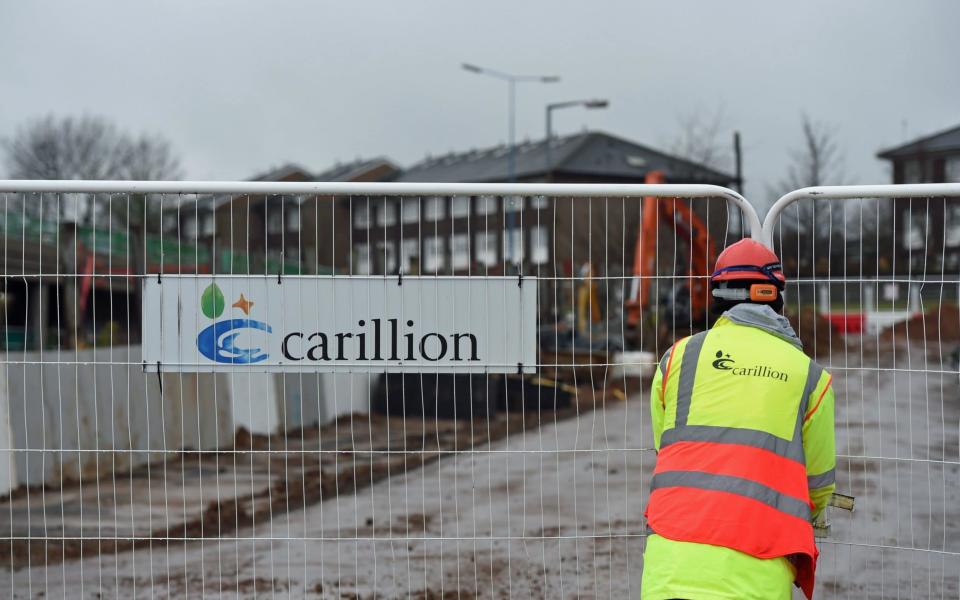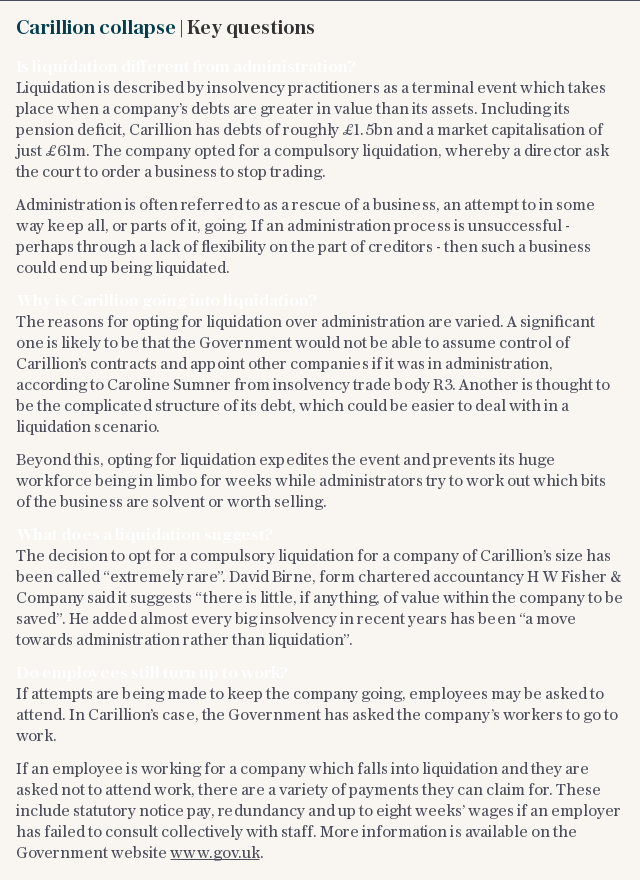Little evidence that PFI contracts are good value, NAO report finds

There is little evidence that handing public contracts to private organisations offers value for money for taxpayers, according a National Audit Office report published days after major government partner Carillion collapsed.
There are currently 716 private finance initiative (PFI) projects either under construction or in operation, with a total value of £59.4bn. Repayment for these projects cost the taxpayer £10.3bn last year, the report found.
Even if no new deals are entered into, the existing contracts will cost the taxpayer £199bn by the time they end in the 2040s.
In a scathing analysis of the success of the projects, the NAO said that there is almost no information about whether PFI agreements are actually better value for money given the higher cost of the deals to government. The Treasury was unable to quantify whether projects had been cheaper in the construction or running in the long term, it said.
MP Meg Hillier, who chairs the public accounts committee, said: “After 25 years of PFI, there is still little evidence that it delivers enough benefit to offset the additional costs of borrowing money privately. Many local bodies are now shackled to inflexible PFI contracts that are exorbitantly expensive to change.
“We need more investment in our schools and hospitals but if we get the contracts wrong, taxpayers pay the price.”

The news came as Labour leader Jeremy Corbyn called for an end to the "costly racket" of outsourcing public services as he clashed with Theresa May over Carillion's collapse.
Mr Corbyn told MPs that the private sector suppliers offered poor value for money and should be "shown the door". Mrs May has faced criticism in recent days for continuing to appoint public contracts to Carillion even after it had issued profit warnings.
Financial warnings were ignored to try to keep Carillion "afloat", Mr Corbyn claimed during Prime Minister's Questions on Wednesday. One of Carillion's major projects, the Midland Metropolitan Hospital, is a PFI scheme.
Mrs May hit back, accusing Mr Corbyn of being anti-business: "What Labour oppose isn't just a role for private companies in public services – but the private sector as a whole," she said.
“The vast majority of people in this country in employment are employed by the private sector but the shadow chancellor calls businesses the real enemy."

 Yahoo Finance
Yahoo Finance 